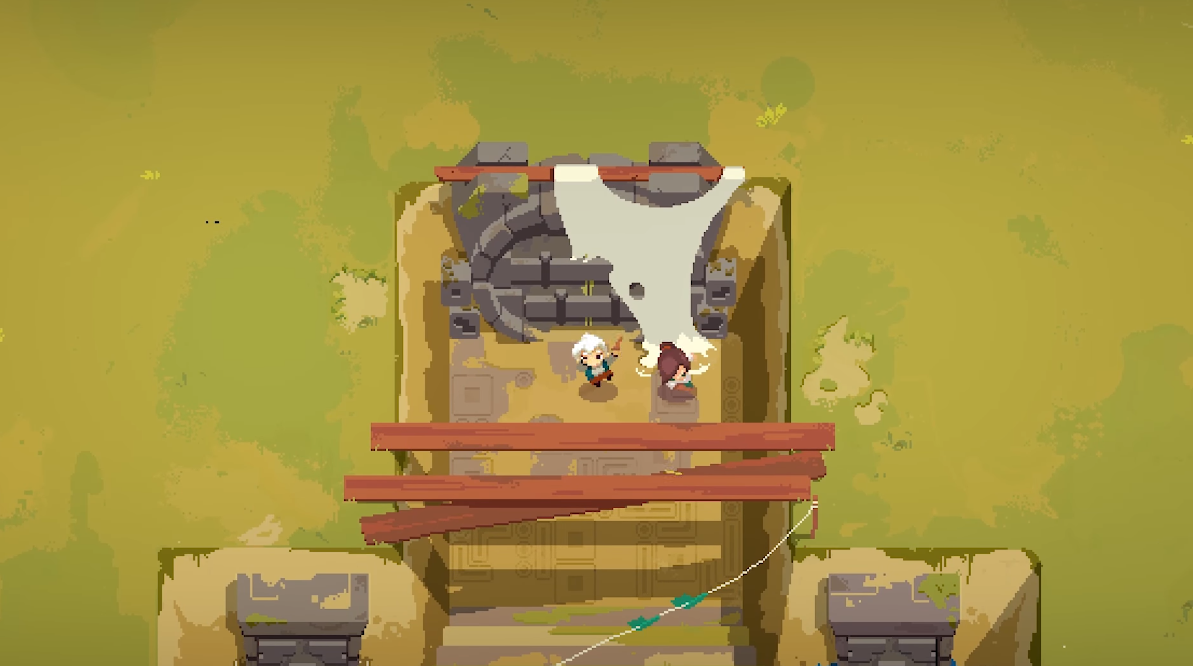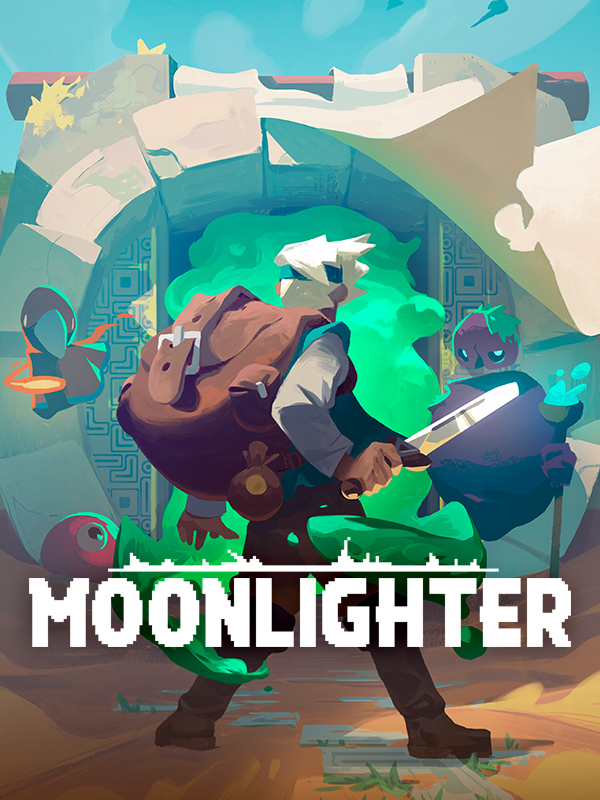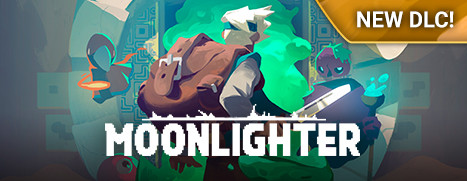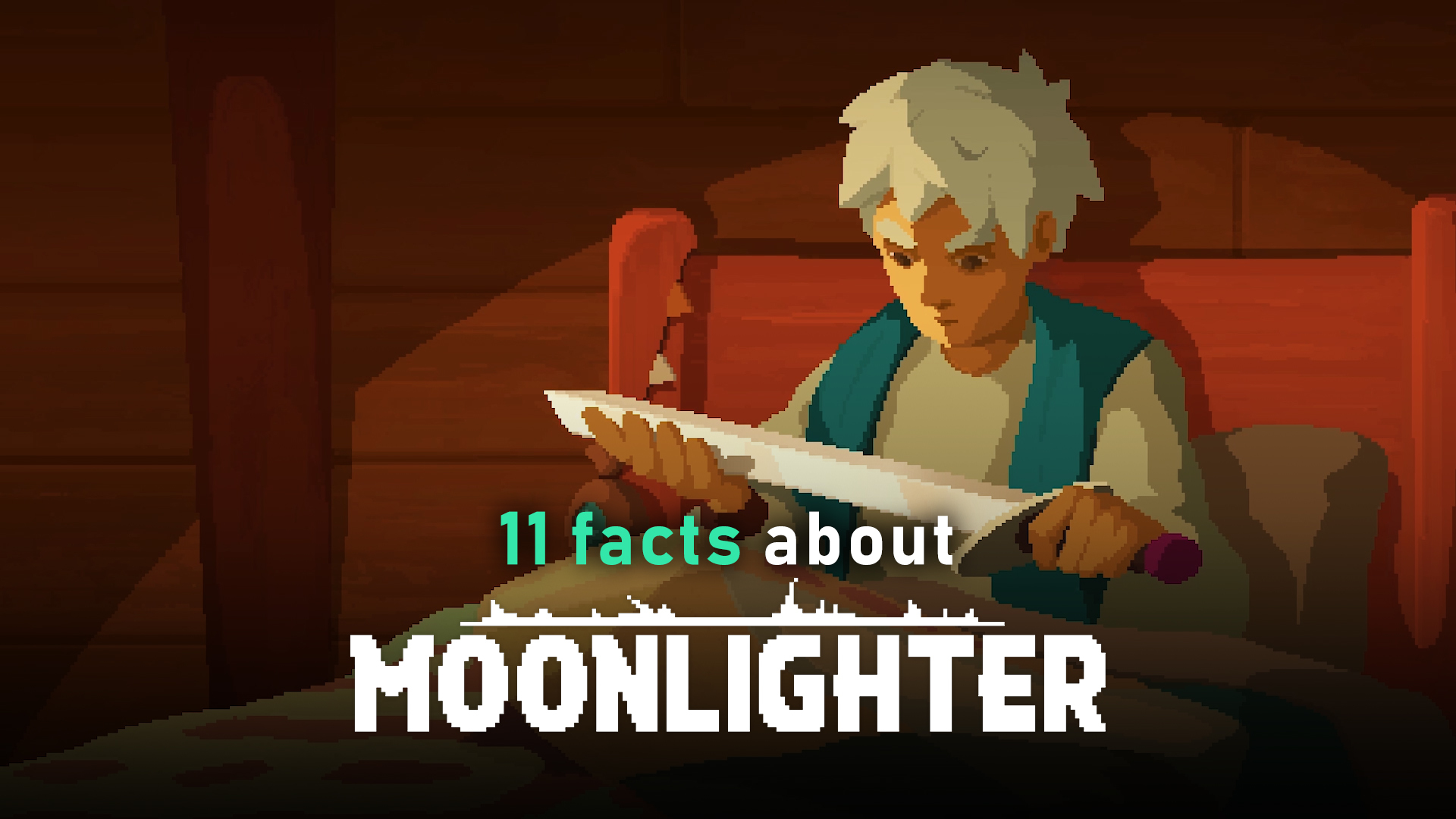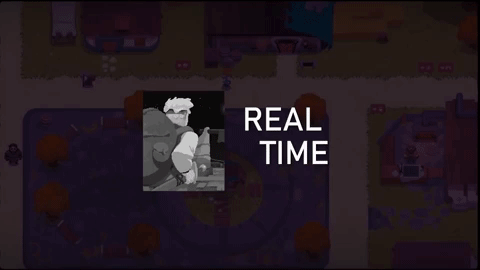
Yes, I know, I'm selling sticks, but these sticks fell off of something that nearly killed me in a deep, dark dungeon just a few minutes ago. I risked my hide for that limestone over there, too. This particular starter cable is most certainly a priceless relic, and if you want me to get more treasure like it, you're going to have to pay the price I've set for it. Or at least a price we can agree on.
In Moonlighter, your RPG hero's inventory, perpetually overstuffed with all the things you're absolutely sure you're going to need one day, is a vital part of the experience. You control Will, the young, white-haired owner of the eponymous shop in the small town of Rynoka. The shop's name is everything, as Will sells only items he's gathered while moonlighting as an adventurer at the dungeon not far from his house. When we first meet him, he's in there armed with nothing but a broom, and despite giving his all our adventurer promptly receives the beating of his life. This is the game's first and most important lesson: to make it through the dungeon, you're going to need more than just skill - you're also going to need a whole lot of cash for equipment.
At first, Moonlighter feels like a bit of a vicious circle. To get better weapons, you need materials and quite a formidable stack of coins, but to get either of these you're going to have to go into the dungeon and fight monsters for parts to sell once you return. The procedurally generated dungeons, five in total, have Zelda written all over them: exploring the interconnected rooms, there are always plenty of pots to smash, innocent bushes to stab and ravines to tumble down. You face off against a variety of enemies with different behaviours, and that means adapting or getting cornered quickly. An escape is possible at any point using a talisman that drops you right back in town. Using it costs money, getting away in one piece is thankfully a bargain.
Read more…






